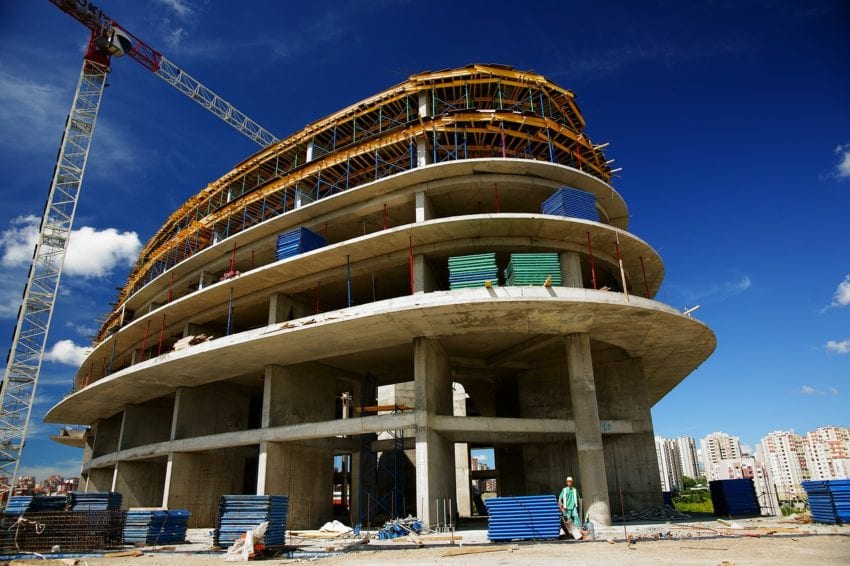Port Moody Councillor Encourages Mass Timber for New High-Rise Construction
Tricitynews.com reports that Port Moody, a city in Metro Vancouver, Canada is considering placing a ban on using concrete in high-rise construction. Instead, the city would encourage mass-timber building as it looks for ways to reduce construction-related greenhouse gases by 40% over the next nine years.
What’s the Problem?
This proposition, set forth by Coun. Steve Milani, calls for the city to encourage builders to use mass timber in constructing buildings over six stories tall. The proposition also calls for phasing out the use of concrete as a construction material. A task force has been established to study the impact that these building materials have on the local environment.

Milani argues that mass timber construction has less of an impact on the environment than concrete. It can be constructed faster, and it can be dismantled and reused instead of getting sent to landfills. He argues that mass timber construction is less disruptive than traditional concrete construction and that it will create more jobs within the province’s lumber industry.
“Mass timber is a viable option for building up to 12 stories,” he said. “Anything that is going to help us reduce those greenhouse gases.”
The Opposition
However, some members of the city council look at Milani’s proposition as short-sighted. Mass timber construction, which has yet to be tested beyond a height of about 85 meters, remains unconvincing for some.
“There’s a very one-sided view to this report,” said Coun. Diana Dilworth, who also notes that mass timber construction still relies on concrete for foundations and other forms. “To say we want to ban concrete is cutting off our nose to spite our face.”

Coun. Zoë Royer argues that banning concrete construction could actually increase greenhouse gases by encouraging urban sprawl away from the city’s mass transit systems and increasing vehicle usage.
She also points out that mass timber construction hasn’t been proven to be a viable large-scale alternative to concrete construction. Even the mass timber construction that has been part of a 23-acre park redevelopment proposition has yet to produce an actual architectural plan. “Once we’ve done one, that would be an extraordinary learning opportunity.”
How Is the Concrete Industry Taking the News?
This proposed ban has also elicited reactions from members of the concrete industry. The President and CEO of the Ottawa-based Cement Association of Canada, Michael McSweeney, believes that any decisions regarding building materials should be based on science.
“If politicians are going to say we have a climate emergency, they need to examine every decision they make so it’s consistent with their views on fighting climate change. We can’t be greenwashing,” he explains. He also mentions that he’s “never seen anyone try to ban a building material that is authorized for use in the national and provincial building codes.”
He also points out that concrete manufacturers are already working to reduce their carbon footprint. In this specific case, concrete would travel less than 60 km from the manufacturing plant to the jobsite. He also notes that Portland cement has begun grinding a portion of the limestone content instead of superheating it, reducing greenhouse gas emissions by about 10%.
“We can’t be greenwashing…[we’ve] never seen anyone try to ban a building material that is authorized for use in the national and provincial building codes.”
MICHAEL MCSWEENEY, President and CEO of Ottawa-based Cement Association of Canada
In October 2019, Port Moody council passed a motion to investigate the advantages of Portland cement, though what these investigations have uncovered remains to be seen at this point.
Coun. Hunter Madsen, who originally proposed the Portland Cement investigation, cautions wariness with new construction practices. “As compelling as the story for mass timber is, there are other pieces to it.”
What are Your Thoughts?
Will mass timber present a viable alternative to cement construction, particularly for building high-rises? Is cement construction the bane of every regulatory commission ever? Is Canada just being silly? What do you think?
We know there are tons of you out there with strong opinions on just about everything. Many of you aren’t shy about expressing them, either. This seems like one of those topics that are bound to inspire conversation, so leave your comments in the section below.



